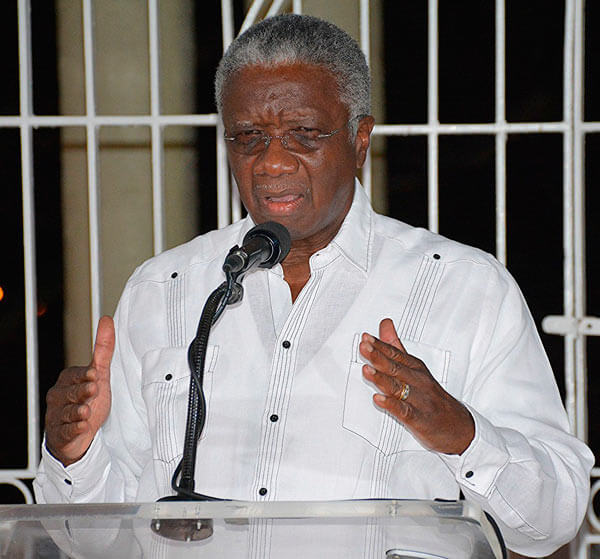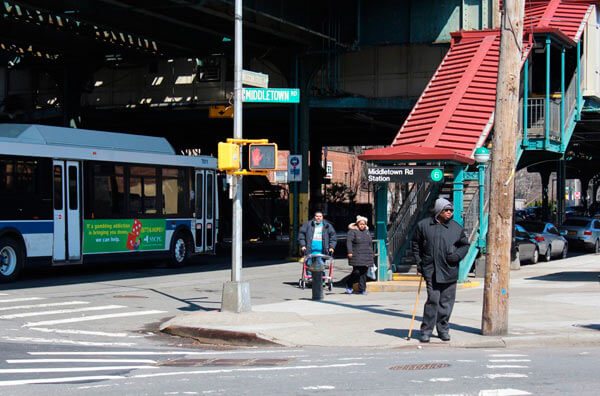The recent arrival in Barbados of two persons who exercised their CARICOM rights to a prolonged stay on the island, obtained through a member state’s Citizenship by Investment programme has Prime Minister Freundel Stuart uneasy.
The Barbadian leader has reported that the persons, who are nationals of non-Caribbean countries took advantage of a Citizenship by Investment programme offered in a CARICOM member country to obtain passports of that territory and exercised their right to remain in Barbados for least six months without question as guaranteed under the CARICOM Freedom of Movement convention.
Stuart over the last weekend spoke of the powerless position that local immigration authority found itself in when the two opted to remain on the island after the United States Embassy in Barbados, that covers the entire Eastern Caribbean, refused their applications for visas to travel to the United States.
“The American Embassy turned down the applications for the visas, but the persons involved said ‘we are not going back to where we came from, we have a right to six months stay in Barbados and we want to stay here under our six months stay under the Freedom of Movement regime,’” Stuart said.
Stuart said that the distress brought upon Barbados because of the uncertainty of motive these two CARICOM ‘nationals’ who are not welcomed in the United States is precisely what he has been fighting against when in the past he objected to the citizenship based on investment programmes offered by sister territories.
“I have fought them [heads of governments] at CARICOM over those programmes … because I say to them, when you grant these people citizenship of your country and Barbados is not a part of the transaction, those people become CARICOM citizens and have, based on our Freedom of Movement arrangements, the right to come into Barbados when they like and how they like although we don’t know them,” he said.
“In some cases the persons who are granted citizenship do not have to even come to the country in order to get citizenship or to be able to get a passport,” Stuart noted.
The Barbados prime minister’s outcry Sunday was purely on security grounds because he said he was not unsympathetic to the economic needs of CARICOM nations.
“That is what is going on in the Caribbean because all the countries of the Caribbean are under pressure,” he said, adding, “those programmes keep them [the CARICOM territories] going and allow them to pay their bills from day to day.”
“I have sat as head of government of Barbados at many regional CARICOM meetings and heard their leaders say that if they were not selling their citizenship, if they were not selling passports their countries would be basket cases.”
Stuart refrained from naming the original country of those two persons who received citizenship within CARICOM for money but hinted that, “you have to catch about six or seven different airplanes to get to where they came from.”
Stuart’s revelation of his country’s unease with the legal presence of two suspect persons comes against the backdrop of reports out of Antigua of a now deceased 25-year-old man who obtained Antiguan and Barbudan citizenship in February 2017 being alleged to have masterminded the largest criminal marketplace on the Internet, AlphaBay.
The Antigua Observed newspaper a week ago reported that, “Alexandre Cazes, who with his wife obtained citizenship through the Citizenship by Investment Programme (CIP), allegedly ran the dark website which the US Department of Justice (DOJ) said was used to sell deadly illegal drugs, stolen and fraudulent identification documents and access devices, counterfeit goods, malware and other computer hacking tools, firearms, and toxic chemicals throughout the world.”
“US Attorney General Jeff Sessions hailed the move to shut AlphaBay as the largest darknet shut down in history, and the DOJ is now turning part of its attention to seizing Cazes’ property, including Villa 302 at Nonsuch Bay Condominiums in St. Phillip’s South, Antigua which he purchased under the CIP,” the Observer also stated





















